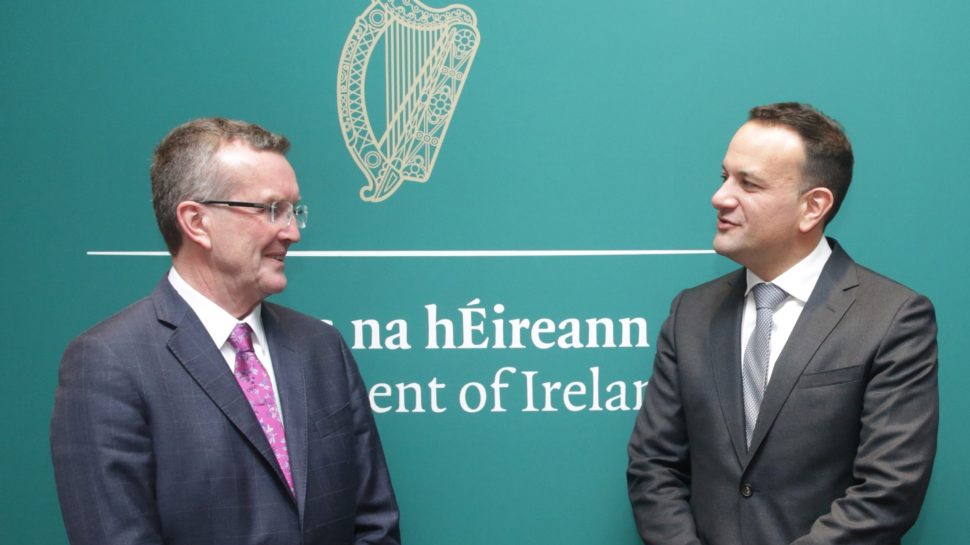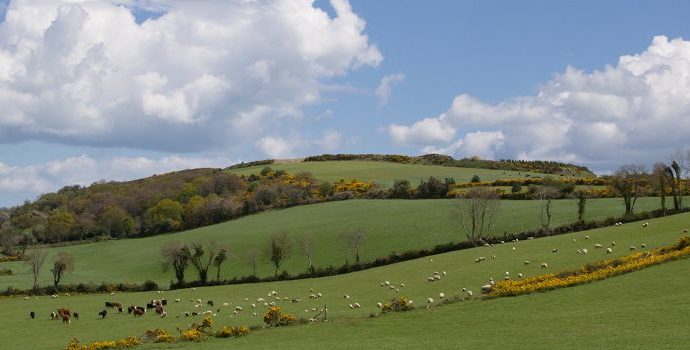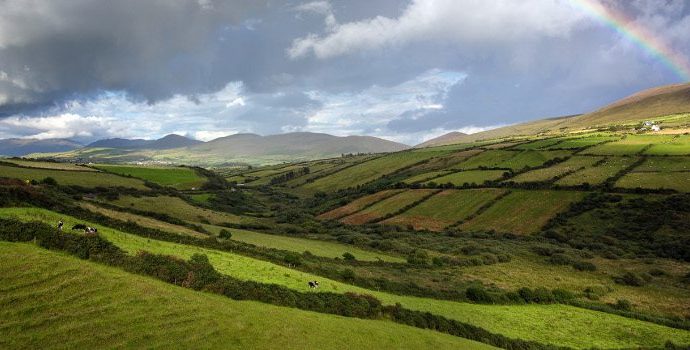
IFA President Tim Cullinan met with An Tánaiste Leo Varadkar yesterday evening.
Amongst the issues discussed were farming’s climate targets, the Common Agricultural Policy (CAP), Brexit, rising input costs and work permits.
The meeting was also attended by Minister of State at the Department of Agriculture, Martin Heydon.
Tim Cullinan said everyone understands the need to work towards achieving our sector emissions ceiling of between 16 to 18 mega tonnes of carbon, which is a reduction of between 22% and 30%. However, this must be achieved by continued research work to reduce methane output per animal not by using a blunt instrument to limit output. IFA is totally opposed to any imposed limits on production,” he said.
“The Tánaiste was clear that there has been no discussion at Government level about restricting output at farm level in any sector,” he said.
“As set out in Food Vision 2030, we must strike the right balance between the three pillars of sustainability – environmental, economic and social,” he said.
“The emphasis must be on reducing methane output per animal. We need to allow time for what are very promising scientific solutions to take effect. We cannot use a blunt instrument to address our environmental challenges, which would have significant economic and social consequences,” he said.
“Costs have surged on farms this year and farmers cannot afford to have further restrictions placed on them,” he said.
“On CAP, we made it clear that a cohort of our most productive farmers are going to have their incomes decimated. The Government must come up with additional funding to support the beef, sheep and tillage sectors,” he said.
On Brexit, we reminded the Tánaiste that there were still serious threats to Irish farming and that some sectors are already suffering the consequences. The Brexit Adjustment Reserve must be available for our sector,” he said. “There are also labour shortages in farms and in the processing sector. While there has been an allocation of work permits for the sector, there are significant backlogs in the processing of permits which is causing great frustration,” he said.




